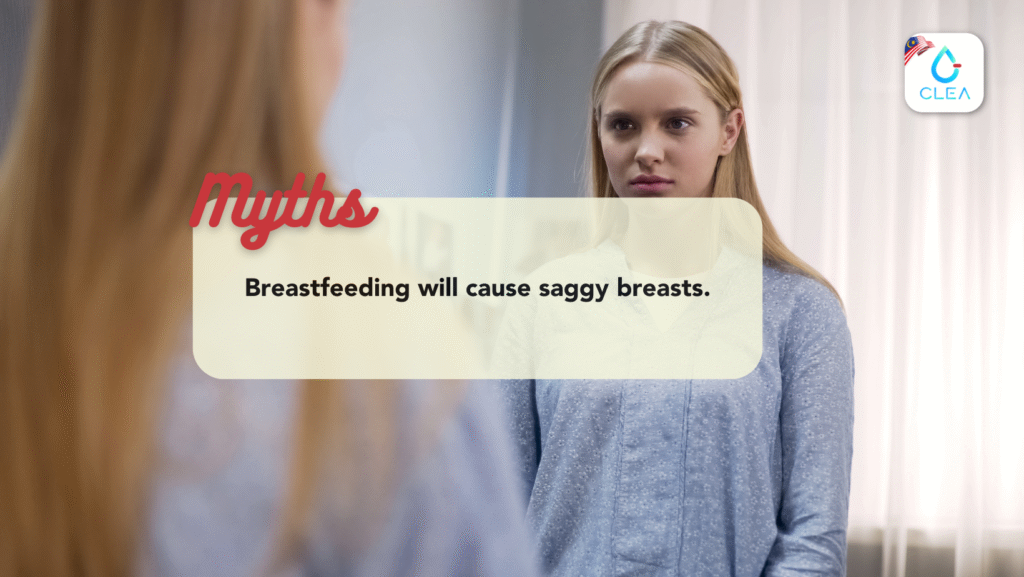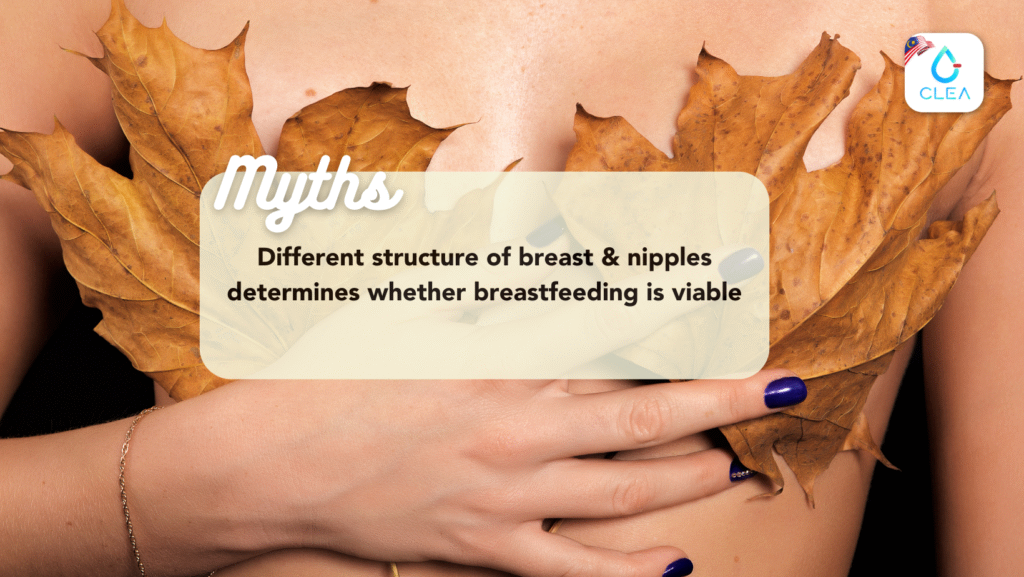Breastfeeding Myth #1: You will need to drink milk to produce milk.

False ! Drinking milk does not affect a woman’s production of breast milk. Whether a mother drinks milk or not, it has nothing to do with the supply of breast milk. However, it is essential for the mother to remain hydrated with any form of liquid and consume a healthy and well-rounded diet. Necessary nutrient from the body will be drawn and added to her breast milk. If a mother is undernourished, she will become even more undernourished while her body continues to supply the baby with nutrients. (Source: chla.org)
Breastfeeding Myth #2: Breastfeeding can cause saggy breast.

False ! Breastfeeding is not the cause of saggy breast. Research shows that hormonal and weight fluctuations during pregnancy are the main cause of on changes of breast. Aging and your family’s genetics affects changes in breast as well. (Source: breastmilkcounts)
Breastfeeding Myth #3: Babies who are breastfed will not get sick.

Not true ! Exposure to viruses and other infections will still put breastfed babies at risk to get sick. However, that doesn’t mean that breast milk isn’t protective.
Breast milk does help decrease the risk of common childhood diseases like infection of the ear and stomach viruses. This is because breastmilk isn’t just food. It also contains immunological factors that protect babies from getting very sick, even if they do get exposed to a virus or infection. (Source: healthline)
Breastfeeding Myth #4: Breast & nipple size structure determines whether you can breastfeed or not

Small-sized breasts can make as much milk as large-sized breasts. (Source: Healthline)
Nipple size and shape: Women have different sizes and shapes of nipples—flat, round, pointy, large, and or small. Regardless of the shape and size, it shouldn’t prevent them from breastfeeding. Women with flat nipples, inverted nipples, or very large nipples may afce issues getting their baby to latch on in the beginning. However, no worries, as these issues are manageable.
Engorged breasts: High percentage of women experience certain level of breast engorgement during the early weeks after giving birth. Breast engorgement usually occurs when you miss feedings or if your baby is not eating due to sickness. Breast engorgement causes breast to become hard, swollen, and even painful due to the excess milk in the breasts. It also can be difficult for your baby to latch onto your breast, so you may need to express some milk initially before feeding. (Source: verywellfamily)
Breastfeeding Myth #5: You can only eat bland food when you’re breastfeeding.

False ! By the time the food you have eaten has been digested and used to make breast milk, all spicy or flavourful ingredients have been broken down and won’t affect your baby at all. Similarly another common myth that is believed is eating cabbage or broccoli will make your baby gassy, which is not true. If your baby refuses to nurse, it’s not because you’ve eaten spicy food, but of other reasons. (Source: Swaddle)


Useful Link : https://cleadoc.com
Reference :
https://www.chla.org/blog/rn-remedies/ten-myths-and-facts-about-breastfeeding
https://www.breastmilkcounts.com/benefits/myths-and-facts-about-breastfeeding/
https://www.healthline.com/health/breastfeeding/breastfeeding-myths#30-myths
https://www.verywellfamily.com/breastfeeding-breast-size-and-shape-431768#citation-5
https://theswaddle.com/16-more-pieces-of-breastfeeding-advice-that-are-actually-breastfeeding-myths/


